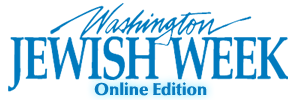
'Brave and hopeful and strong' District child loses battle against genetic disease
by Debra Rubin
Mommy, this is a very bad last night of Chanuka." Those were the last words Henry Strongin Goldberg said before being put on a ventilator. And his last words ever.
Just days later, on Dec. 11, Henry lost his battle with Fanconi anemia, a rare genetic disease, dying from complications of a bone marrow transplant.
He was 7.
A District resident, he had spent nearly the last six weeks of his young life at Fairview-University Medical Center in Minneapolis. It was at that hospital that he had had the bone marrow transplant 2 1/2 years ago, a procedure that his parents, Laurie Strongin and Allen Goldberg, had hoped would allow their son to live.
He was an "amazing" child, said Strongin, in good spirits -- despite a life of blood tests, surgeries, transfusions and chemotherapy. Until the last two weeks of his life, "he was indomitable," said his mom, "just brave and hopeful and strong."
He loved Superman, Batman, Pokeman and Disney World, and had attended kindergarten last year at the Jewish Primary Day School in Silver Spring. This year, he began first grade at the school, but then as his health declined, he switched to home schooling. Earlier, he had attended the Gan Hayeled at Adas Israel Congregation in the District, where his family holds membership.
His brother, Jack, was born in late 1996. His parents had hoped he would be a genetic bone marrow match for Henry. He wasn't, but became his big brother's companion.
Strongin and Goldberg decided to try in-vitro fertilization, trying to produce an embryo that would develop into a child with a perfect genetic match. They gave up after nine failed attempts at pregnancy, and were featured in a July 2001 New York Times Magazine article about the controversial procedure and the medical journey they were taking with their son.
Henry was also featured on Nightline.
The family sought an unrelated marrow donor. In April 2000, WJW featured an article about Henry and bone marrow testing drives being held locally in hopes of finding a donor.
In July 2000, he had the transplant.
"We tried everything we could," said his mom. "We don't have any regrets."
Somehow, she said, "we were able to enjoy every minute of every day. While we didn't take it for granted that we were going to have a long life together, at the same time, we didn't really believe Henry would ever die."
Meanwhile, 14 months ago, the couple had a third son, Joe, conceived, as Strongin said, "the good old-fashioned way."
Joseph's genetic make-up did not match Henry's, but he and Jack are matches for one another. "They'd better not need it in my lifetime," said their mother.
She and her husband hope to set up a foundation in Henry's name that will do research on Fanconi anemia.
Meanwhile, they ask that contributions be sent to the Fanconi Anemia Research Fund, 1801 Willamette St., Suite 200, Eugene, OR 97401.
Survivors also include Henry's grandparents, Ted Goldberg of Rockville and Pat and Sy Strongin of the District.
In a eulogy that Laurie Strongin wrote for her son, she said, "Before he could even smile or talk, Henry taught me what was important and what just didn't matter at all; and he taught me to savor each moment; to love; to laugh and to dwell in possibility."
--------------------------------------------------------------------------------
Copyright 2002, Washington Jewish Week
1500 East Jefferson St.
Rockville, MD 20852
(301) 230-2222